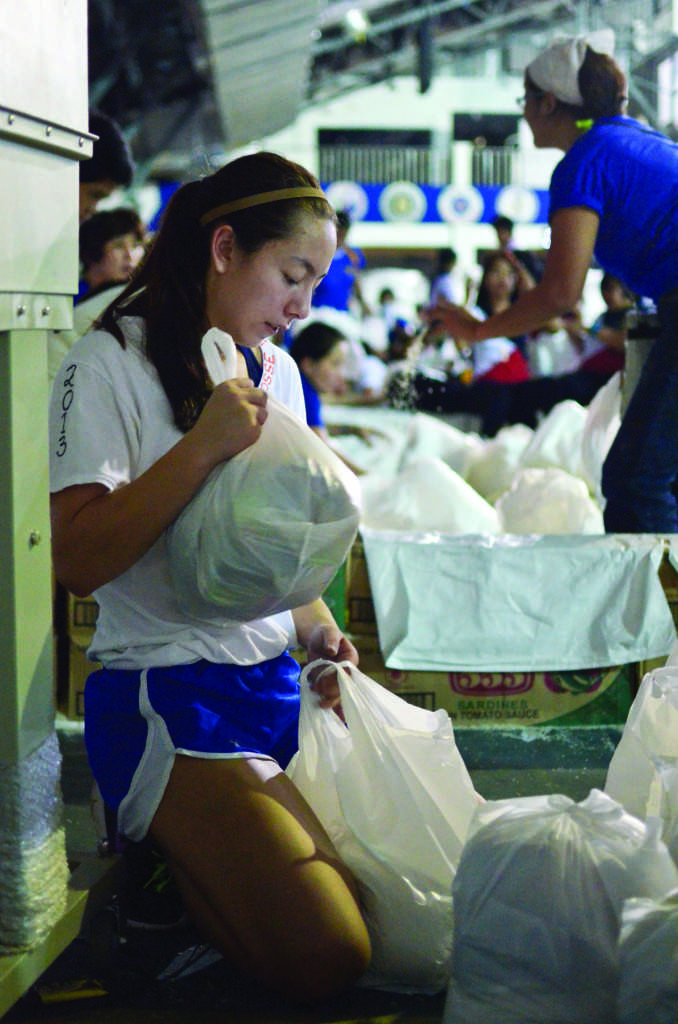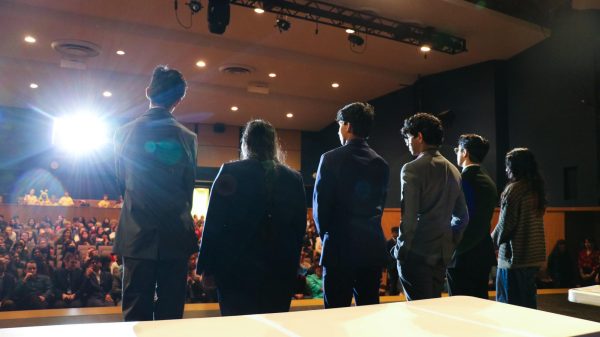Clean Up After The Storm

Six kilos of rice. Four cans of corned beef. Four cans of sardines. Eight packages of noodles. Eight cups of coffee.
Junior Megan McCormick would put these food rations in a trash bag, where they would then be given to people from across the Philippines affected by Typhoon Haiyan.
McCormick has a special connection to the area, as her mother was born in the Philippines and lived there until her mid 20s. McCormick still has relatives there, who live in Manila, the nation’s capital.
Typhoon Haiyan, a category five super typhoon, hit the Philippines in early November and has killed over 6,000 people. The storm devastated Tacloban, a city of over 200,000 people with a population density around the size of Phoenix, Arizona. Tacloban is about 360 miles southeast of Manila, which took away some of the McCormick’s worry when they learned of the disaster.
“We knew that they [their family] weren’t majorly hit because of where they were located,” she said.
McCormick said it did not take as long as she thought for her to get in touch with her family.
The McCormick family had already planned on visiting Manila over Thanksgiving break. Since the disaster had just struck, they decided to join in the relief effort. The family did not go to Tacloban, but helped pack food in Villamor Air Base in Manila.
“There was a lot of packaging … a huge truck of rice came in, like so much rice, and the military people who were there would help carry it in,” she said.
As the rice was carried in, the volunteers were given a list of what went into a family pack. McCormick spent time packing and bagging the food.
Refugees from Tacloban were flown into Villamore by C-130 aircrafts. Though the language barrier prevented McCormick from talking to the people, McCormick’s cousin was able to talk to the refugees.
“I’m sure they might have left family or friends back there who weren’t as lucky to come to the base,” McCormick said.
People from around the city also gathered in the base to volunteer. So many people offered their services that the McCormicks had difficulties finding an available time to help. They ended up spending about six to eight hours one day packaging food.
A few days before McCormick’s visit, American pop star Alicia Keys visited the same base and sang to and interacted with the refugees.
McCormick took a lot away from her experiences as a volunteer. The most satisfaction she got came from knowing that she directly helped families in need.
“Knowing that someone’s going to open one of the bags that I tied or the rice that I packaged and it will help them in a way that they’ll get food, they’ll be happy and they won’t have to worry about their meal,” she said. “Just knowing that I actually directly helped someone.”
A $50 or more donation includes a subscription to the Clayton High School Globe 2024-2025 print news magazine.
We will mail a copy of our issues to the recipients of your choice.
Your donation helps preserve the tangible experience of print journalism, ensuring that student voices reach our community and that student democracy thrives.










